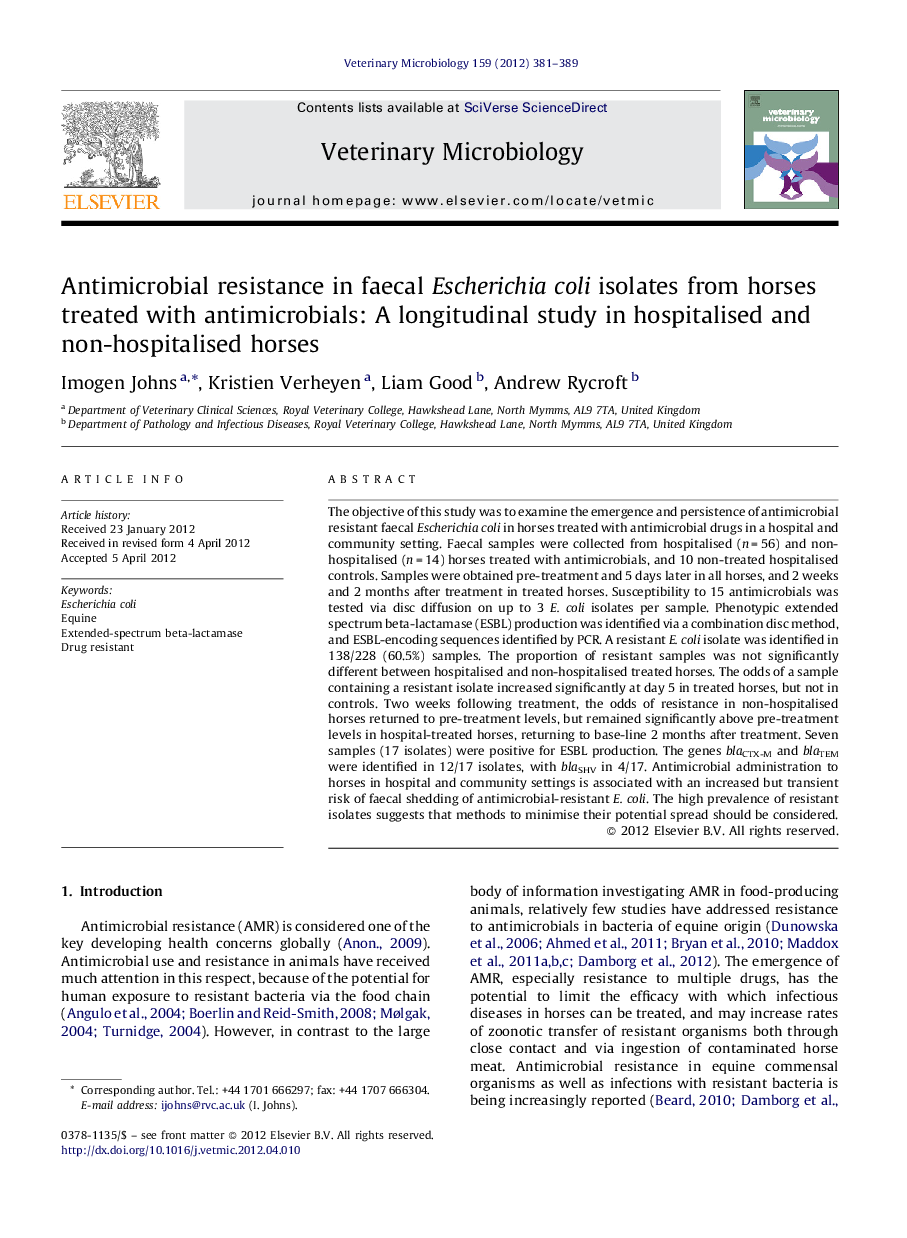| Article ID | Journal | Published Year | Pages | File Type |
|---|---|---|---|---|
| 2467022 | Veterinary Microbiology | 2012 | 9 Pages |
The objective of this study was to examine the emergence and persistence of antimicrobial resistant faecal Escherichia coli in horses treated with antimicrobial drugs in a hospital and community setting. Faecal samples were collected from hospitalised (n = 56) and non-hospitalised (n = 14) horses treated with antimicrobials, and 10 non-treated hospitalised controls. Samples were obtained pre-treatment and 5 days later in all horses, and 2 weeks and 2 months after treatment in treated horses. Susceptibility to 15 antimicrobials was tested via disc diffusion on up to 3 E. coli isolates per sample. Phenotypic extended spectrum beta-lactamase (ESBL) production was identified via a combination disc method, and ESBL-encoding sequences identified by PCR. A resistant E. coli isolate was identified in 138/228 (60.5%) samples. The proportion of resistant samples was not significantly different between hospitalised and non-hospitalised treated horses. The odds of a sample containing a resistant isolate increased significantly at day 5 in treated horses, but not in controls. Two weeks following treatment, the odds of resistance in non-hospitalised horses returned to pre-treatment levels, but remained significantly above pre-treatment levels in hospital-treated horses, returning to base-line 2 months after treatment. Seven samples (17 isolates) were positive for ESBL production. The genes blaCTX-M and blaTEM were identified in 12/17 isolates, with blaSHV in 4/17. Antimicrobial administration to horses in hospital and community settings is associated with an increased but transient risk of faecal shedding of antimicrobial-resistant E. coli. The high prevalence of resistant isolates suggests that methods to minimise their potential spread should be considered.
